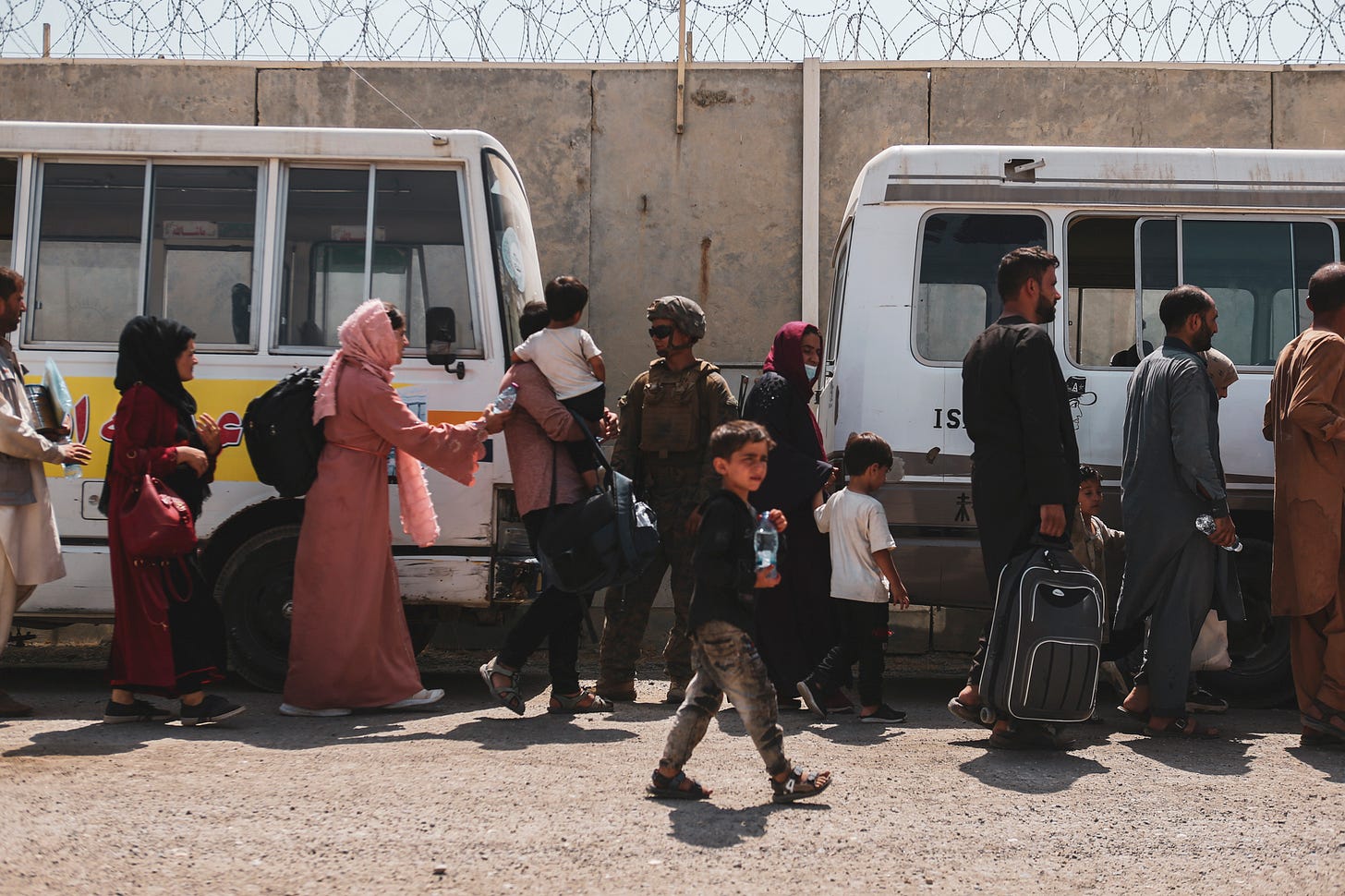
Last year, around October, I made one of the worst decisions of my life. Despite promising myself that I would no longer get involved in “relocating” Afghans, I made the plunge yet again. The situation in Afghanistan was dire, with the Taliban cementing power and many Afghans suffering under their rule. Along with others, we tried to relocate a trusted, vetted Afghan who had suffered mightily under Taliban rule.
In hindsight, I should’ve walked away from the entire endeavor. However, one of my many flaws is that I have a tough time saying no, especially when Afghans are in distress. The personal struggle and guilt I felt in this situation was overwhelming. Perhaps it was guilt manifesting into action or my inability to turn the page from a lost war. Nevertheless, I should’ve said no because the chances of success were slim to none.
In the real world, this op would’ve never seen the light of day. There were too many problems, people weren’t trained, and the chances for success were dismal. However, we plunged ahead despite the long odds. As expected, it didn’t succeed, and it created pain and heartache for many involved.
Everyone is eager to hear my stories, but they often demur hearing the stories that end in heartache. Like the war itself, it ended in misery, despair, and failure. But such things happen. Missions fail, and ops go bad. In the real world, a failure like this would demand an after-action report and a thorough examination of the mistake I made. It's crucial to learn from our failures and hold ourselves accountable.
I’ve made a lot of mistakes over the last three years. Afghans perished because of decisions I’ve made. Despite my successes, they are overshadowed by a litany of failures, which have tragically resulted in the loss of more Afghan allies. It comes with the territory, unfortunately, especially since the United States government has been largely absent from the scene. Nevertheless, it’s essential to hold oneself accountable for your mistakes. Or at least that’s what the military taught me, even though it has yet to hold itself responsible for another lost war.
However, after a lot of introspection, I’ve concluded that nobody is really at fault for these ops because they are run on the backs of volunteers who shoulder the unimaginable weight of failure.
In the end, the Taliban, Al Qaeda, and the Haqqani network are responsible for ops gone awry. Unfortunately, these ops often result in severing relationships, even those that have stood the test of time. Usually, mistakes are made because of miscommunications, which is a common problem in the military, let alone when a rag-tag group of people is doing it for the cause.
Everyone—and I mean every last American—who has donated their time, money, and energy to helping Afghans is a hero in my eyes. You are the very best of the American ideal.
Life must be more than the war. Life must be more than even Afghanistan. Everyone who has participated in such heroic feats should know that mishaps and failures are not their fault but instead the fault of our government and the terrorists who run a gender apartheid regime.
In the coming months, the press will be hounding Afghan case managers for their stories, as they often do during the anniversary of the fall. I dread sharing my story yet again. It pains me to relive those turbulent months three years ago.
Again, as someone who has spent his life serving Afghanistan, I want everyone in this space to know that creating barriers is a perfectly normal and healthy decision. If you don’t want to bear your soul for the American public, then you’re under no obligation to sing for your supper.
One of the many reasons the Afghan space is so tumultuous and fraught with bad blood is that it is mired in failure. And when nobody takes accountability for lost wars and missions, the blame game begins. In the end, pointing fingers, which I admit I have done as well, helps nobody.
Ops go bad. People die. Take it from someone who has spent far too much time conducting such ops under the watchful eye of Big Brother. This is a long way of saying that nobody is at fault for bad ops. We can all Monday morning quarterback decisions; believe me, I do it constantly, but it will not help you heal. Instead, it will prevent you from beginning your journey to Moral Recovery.
Until Next Time



Excellent article, balanced and as always thoughtful . People need to hear this. You are always accountable. So proud of all that you did and it was a lot.
I am seeing the same balance and thoughtfulness as Katherine does. As in the last podcast I listened to, this piece also exudes a calmness that is very comforting for me as a reader.